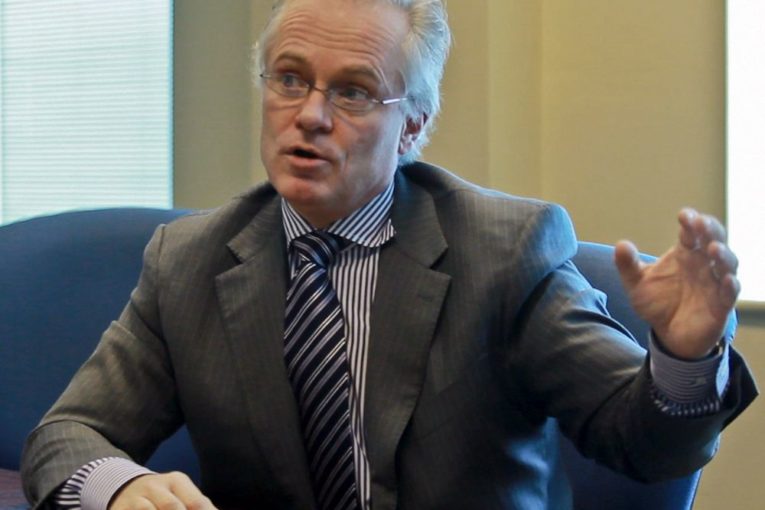
I’m from the government and I’m here to help.
These nine words aren’t something the oilpatch typically wants to hear from governments.
But these aren’t typical times when it comes to the energy sector and efforts needed to get pipelines built in this country.
Petroleum producers and energy executives who generally eschew government intervention are now grappling with the prospect of provincial or federal investment in their sector.
Opinions are mixed, although many say they’d welcome the Notley or Trudeau governments taking some type of financial position in the embattled Trans Mountain pipeline expansion to get it built.
Two of the sector’s main lobby groups both back Premier Rachel Notley’s suggestion that Alberta become financially involved, if that’s required to see it completed.
“In a perfect world, it wouldn’t be the preferred option to have governments step in,” said Gary Leach, president of the Explorers and Producers Association of Canada.
“Extraordinary circumstances call for extraordinary solutions.”
Tim McMillan of the Canadian Association of Petroleum Producers favours Ottawa exerting its authority to stop B.C. from delaying the development further. But the federal and provincial governments should do what it takes to get the $7.4-billion Trans Mountain expansion project across the finish line.
“At this stage in the game, we need to be looking at all the levers the federal government can pull,” said McMillan.
“Having the provincial government look at financial tools which they would be willing to entertain, I think is appropriate at this stage, too.”
The prickly debate surrounding government involvement was spurred by Kinder Morgan’s announcement Sunday that it’s suspending all non-essential activities and spending on the project.
It could pull the plug, unless it gets clarity by May 31 on its ability to finish the pipeline twinning.
The pipeline, which runs from the Edmonton area to Burnaby, B.C., has federal approval, but delays and court challenges have clouded the development’s future.
Both Notley and the prime minister have vowed the project will be built; the B.C. government has pledged to try and stop it.
In an interview with the Herald’s Don Braid, Notley said her government would consider buying the project outright if that was required.
Ottawa is also studying its financial options.
While the sector wants the pipeline built, the very idea of governments getting financially entangled in the oilpatch makes some players anxious.
“What it brought to mind to me was Ronald Reagan’s quote about government. If it moves, you tax it. If it keeps moving, you regulate it. And if it stops moving, you subsidize it,” said Michael Binnion, CEO of Questerre Energy Corp.
“It just feels like we’ve regulated this pipeline into not moving, and now we’re going to subsidize it to keep it alive.”
Binnion said he’s been wrestling with the question in his own mind, and would first like to see governments use the next seven weeks to try to end the gridlock.
It’s not like the project needs a bailout to keep going. It needs certainty.
Tom Whalen, CEO of the Petroleum Services Association of Canada, noted industry has already raised the necessary money to build the infrastructure.
Using government money should be a “last-ditch effort,” he said.
“We want to get it built, but what kind of public perception on the negative side are we going to get if government is seen to intervene and become an investor?” Whalen wondered.
The province has estimated Trans Mountain would be worth $1.5 billion a year in additional provincial revenues once completed because it will shrink the price differential facing Alberta’s heavy oil.
“I’d be very supportive of it,” said Grant Fagerheim, chief executive of Whitecap Resources Inc.
“It’s money you are going to get back. If you look at the economics of this, you are actually going to get a return on this capital.”
Various levels of government have dabbled in the energy sector over the years, such as the federal creation of Petro-Canada in the 1970s, and governments’ involvement in the Syncrude and Hibernia developments.
Retired Syncrude president Jim Carter, now a member of Notley’s market access task force, said the idea of government making a direct investment shouldn’t be ruled out.
If a financial incentive is required, it would be better for taxpayers to take some kind of equity position so the province can take part in the economic upside of the venture once it’s done.
Given the multi-faceted problems Canada faces getting any energy infrastructure built — and with new federal legislation to assess future projects looming — it’s imperative Alberta doesn’t let Trans Mountain stall out, Carter said.
But no investment will be risk-free.
The Alberta and Saskatchewan governments, along with Ottawa, took an equity stake to help get the bi-provincial upgrader built in Lloydminster in the 1980s. Alberta invested more than $400 million, but sold its stake in 1994 for $32 million.
Greg Stringham, a former Alberta Energy official who was involved in the upgrader discussions, said there are many ways the province can structure a deal to limit its exposure.
He suspects Alberta will look to keep Kinder Morgan financially intact if construction proceeds, but is then later held up for a lengthy period due to political or legal obstacles.
“Kinder Morgan doesn’t need money, they have the shippers lined up and the money is locked up. So it’s assurances to their equity they need,” said Stringham.
Such assurances cost money. To let the project fail, however, would cost the province a whole lot more.
In this case, the arrival of government assistance would be largely welcomed by a sector that doesn’t usually want such help.
Chris Varcoe is a Calgary Herald columnist.
You can read more of the news on source
